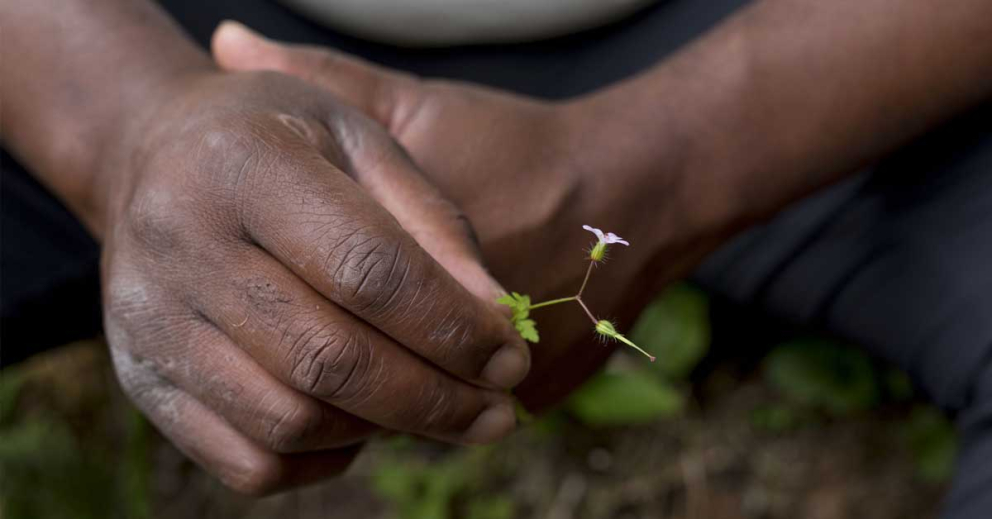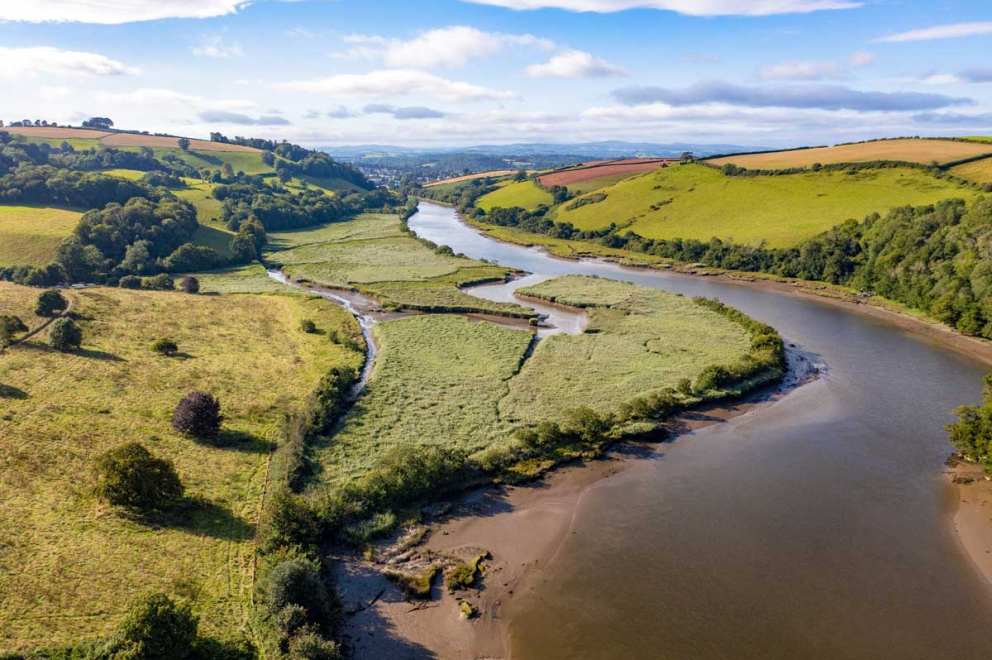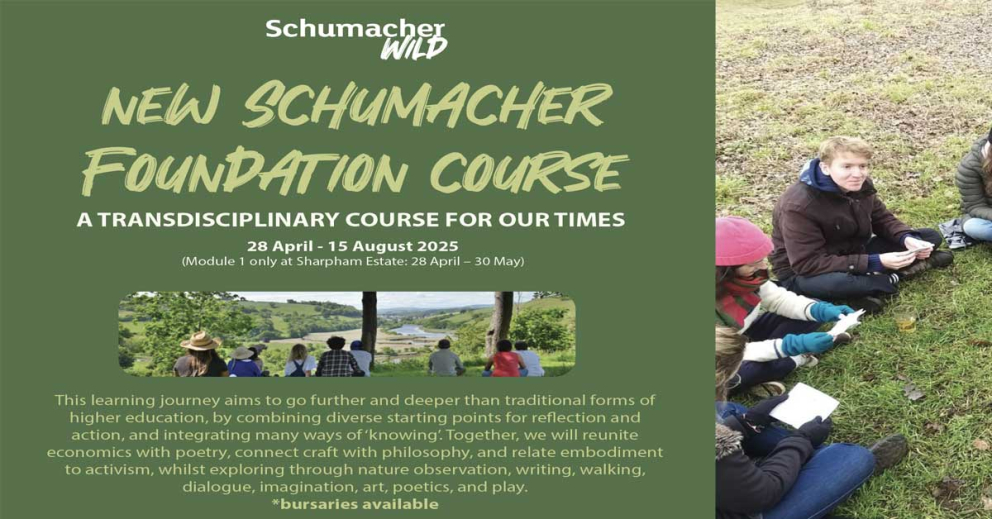
Daphne Pleace reports on the Dusk Chorus walk on the Sharpham Estate.
Four and More Calling Birds: A Dusk Chorus Walk at Sharpham
Even before what was to become a wonderful walk around Sharpham’s grounds had officially begun, nature’s magic happened.
Mike Langman, our leader for the Dusk Chorus walk, stopped his introductory talk in some surprise to tell us a firecrest was singing. A few of us couldn’t hear it and Mike explained the high-pitched si-si-si call is out of range for some humans.
His surprise was because the firecrest , our second smallest bird, is rare in the UK, so although I was one of those who couldn’t hear its song, it was a joy even to know it was there, in the tree canopy, searching the underside of leaves for insects.
We began our walk in the open area in front of Sharpham House with stunning views over the Dart valley, swallows chittering as they flew over us, and the constant caw-caw-caw from the nearby rookery accompanying us.
Mike gave an interesting explanation of the differences in dawn and dusk choruses, and in the differences between bird songs - generally territorial; and calls which are generally more about giving information to other birds.
We heard the first of many blackcaps singing that evening: a sweet, musical sound and one of my favourites. Blackbirds too were just beginning their evening performance - another beautiful lyrical song - and as we moved into the wooded area of Sharpham’s splendid gardens, we were serenaded with both blackcap and blackbird simultaneously: nature’s rap battle!
Our next vocal encounters were a song thrush, with Mike helping us to notice its repeating patterns of song; followed by a wren - a tiny bird not much bigger than the firecrest, but with such a loud song for its size.
Next sound, a surprised gasp from Mike: “Did you hear it? Did you hear the si-si-si? Another firecrest… after me telling you how unusual it is for them to be here…” He explained that the increasing number and range of firecrests was one of the positives from temperatures rising with climate change.
Continuing through the woodland, we heard the soothing sound of the wood-pigeon: “choose-blue-shoes-Susan” - though as Mike said, other mnemonics are available!
We heard much more too: the chiffchaff - a bird named for its call; different rook sounds as they harassed a low-flying buzzard; a nuthatch with its single note song; and yet more liquid tones from the blackcaps and blackbirds. Mike told us that blackcaps are the commonest warbler in Devon. Surely all Devon’s blackcaps were in Sharpham woods that evening.
Wandering on past a small lake we saw tufted duck and a pair of mallard with their four fluff-ball babies in tow, though the highlight there was to just catch a glimpse of a reed warbler and hear its scratchy song.
We returned to the car park along the banks of the River Dart, seeing quiet egrets and shelducks, and not-so-quiet herring gulls and Canada geese!
The blackcaps and blackbirds continued with us until the end of our walk, and as well as more singing we heard different kinds of alarm calls from a blackbird close by.
As one participant put it, “a thoroughly enjoyable evening - and now I can speak blackbird”.
Find out about all our nature and wildlife events here: www.sharphamtrust.org/whatson










